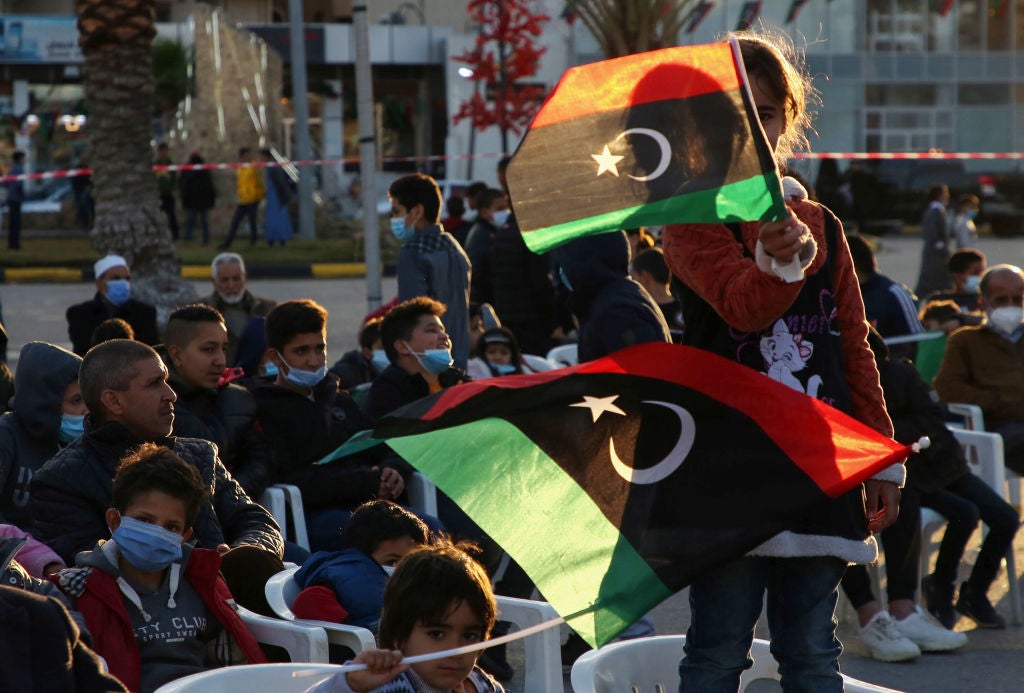We want to improve the lives of ordinary Libyans – firm economic foundation is crucial
As governor of the Central Bank of Libya, I am committed to pursuing a policy of providing financial security and order, and supplying a firm base for the nation

Already beset by internal conflict and political and social instability, Libya is now having to cope with the Covid-19 pandemic and all the uncertainty that brings.
Nevertheless, the country is on the right path – foundations are being laid for political stability and economic recovery. The political dialogue in Tunis, led by the United Nations Support Mission in Libya, has successfully concluded with the endorsement of a new transitional government under the president of the presidential council, Mohamed Almenifi, and Prime Minister Abdulhamid al-Dbeibah. They will govern the country until elections are held in December.
At the heart of achieving economic progress is the Central Bank of Libya, which is committed to pursuing a policy of providing financial security and order, and supplying a firm base for the nation as it emerges from these twin crises.
The transitional government faces other challenges, though: re-establishing security, building political bridges, fostering trust among citizens, and restructuring and re-energising the economy. The central bank will work closely with the new government as the state’s economic advisor, and it will continue to support and cooperate fully with the Economic Working Group, established by the United Nations when Libya descended into conflict after the downfall of the Gaddafi regime.
Despite this “to do” list, there are reasons for optimism. In recent months, the central bank has moved to unify the exchange rate to create greater transparency and certainty for citizens and businesses, and to reduce the ability of fraudsters to manipulate letters of credit to launder money or to profit from corruption.
The central bank is a more united, more cohesive organisation overseen by a focused board. It is working with Deloitte, the international accounting firm, to complete an audit of the central bank accounts and those of the parallel bank in Al Beyda.
The immediate political transition from the Serraj to the incoming Dbeibah government has been stabilised financially by the central bank. The government’s 2020 deficit of about 28bn LYD was financed from reserves, and we have presented an emergency package for January and February 2021. All government wages, subsidies, counter pandemic measures, National Oil Company budget requirements, and various other urgent spending items are covered. It is no secret that our reserves have dropped, while this spending has not been offset by income from national oil revenues, which are frozen at the Libyan Foreign Bank.
Looking ahead, the central bank’s recovery roadmap is aimed at creating a firm economic foundation for government so that the lives of ordinary Libyans improve, and the country is in as strong a position as possible for the holding of major elections. For that to occur, three interrelated steps must be achieved.
The first is resolving the political issue of the so-called “fair distribution of wealth” between the east, west and south of the country. Its resolution lies in the proper management of resources, and higher levels of transparency and disclosure. The issue is critical because it sits at the centre of last year’s oil blockade and current freezing of oil revenues in the Libyan Foreign Bank. Oil revenues must be released and the Libyan Foreign Bank board reinstated so that Libya’s financial system can return to operating normally. I am hopeful that this issue will be resolved now that we have a nationally recognised government. I will ensure the central bank will support this by providing the necessary technical expertise and back up.
Second is the full and final reunification of the central bank. There are a range of challenges that make this difficult, the most significant being the clearing of loans issued by a number of commercial banks with credit from the Al Beyda bank. Following months of study and consultations, my proposal for a temporary resolution in the form of a 5bn LYD loan was adopted by the central bank board of directors. The clearing of all accounts however cannot be completed until a full audit has taken place to establish that this money was neither embezzled nor used for military conflict.
Third is the wider economic reform that is overdue, in order to improve the state’s finances. We must find ways to reduce public subsidies, increase the share of the private sector as a percentage of GDP, and diversify sources of government revenues away from dependence on oil.
We are also committed to improving the everyday lives of as many Libyans as possible. In the short-term this means improving liquidity, ensuring imports of goods can flow freely, making sure that public service salaries are paid on time and combatting corruption, money laundering and financial crimes.
The central bank will continue collaborating closely with the World Bank, IMF, FATF and international organisations to maintain stability and safeguard Libya’s position in the global economy.
None of this is straightforward. A year ago, Covid-19 had yet to spread around the world, wreaking destruction and havoc. Doubtless, other issues will arise. But with a fair wind, fueled by determination and international confidence and support, the central bank can play its part in helping guide Libya to much-needed renewal.
We know what the prize at the end of the course looks like; now we must get there.
Saddik El Kabir is governor of the Central Bank of Libya
Join our commenting forum
Join thought-provoking conversations, follow other Independent readers and see their replies
Comments



Bookmark popover
Removed from bookmarks